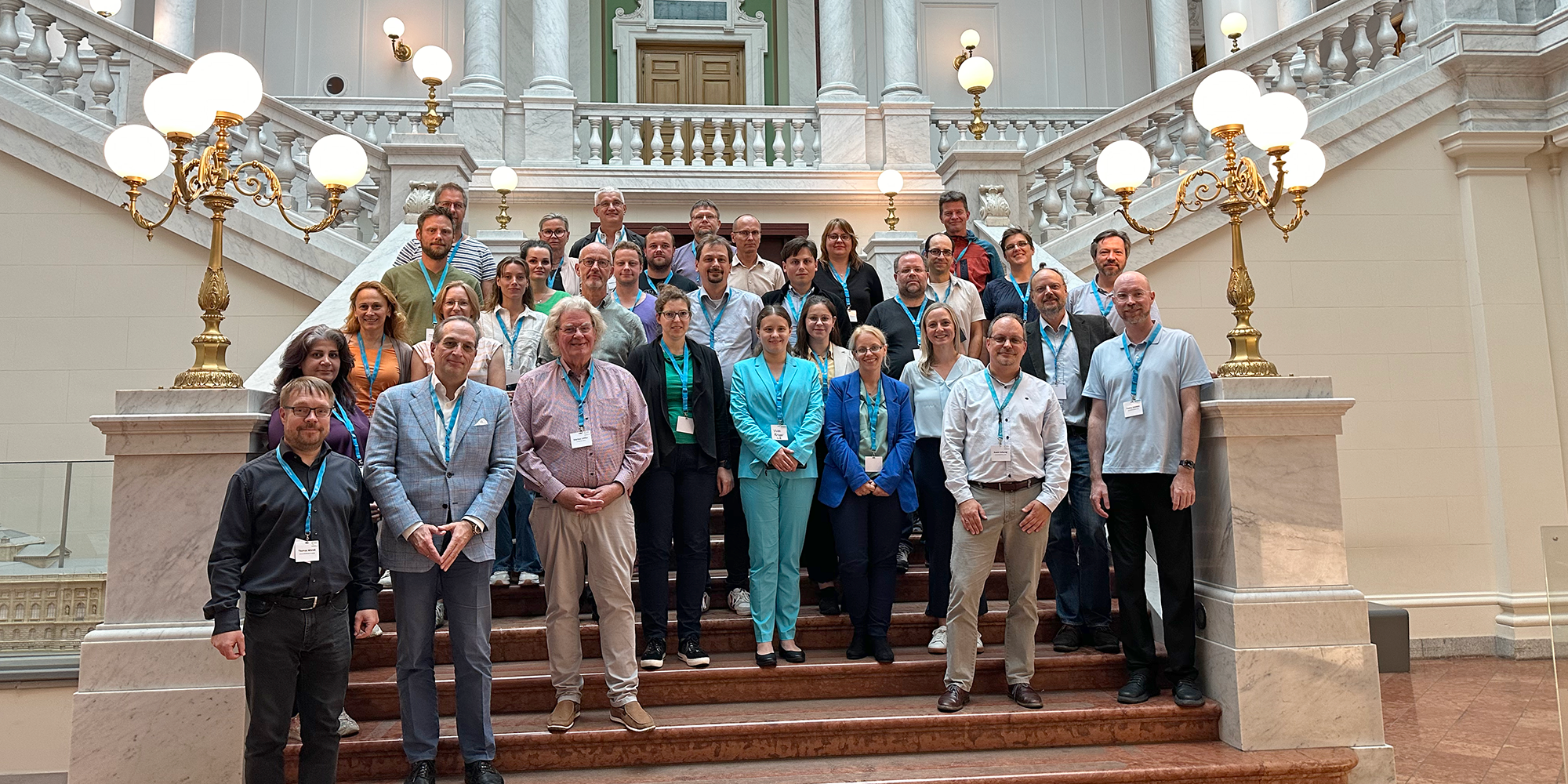
Enhanced Networking for Better Medical Research | 3rd SMITH Closed Meeting September 19-20 in Leipzig
Looking beyond the borders of the SMITH Consortium: Last week, consortium members met for a closed meeting at the Albertina Library of the Leipzig University to discuss the latest developments in the SMITH Consortium and the Medical Informatics Initiative (MII). The focus was on cross-MII projects and the further development of the Data Integration Centers.
MII Academy continues to grow and develop
On the first day, Prof. Dr. Toralf Kirsten from the Leipzig University presented an update on the MII Academy. The MII Academy is an e-learning platform for medical researchers who want to work scientifically with routine clinical data from the Data Integration Centers. In nearly 30 video tutorials, divided into five modules, experts explain how researchers can apply for and analyze data for their projects. Since its launch in April, more than 100 users have already taken advantage of the offer. The MII Academy will now be promoted more widely to researchers outside the MII. Future plans include additional project collaborations, regular consultations, and certification by the Medical Association.
Current status of MII-related projects presented
Prof. Dr. André Scherag, 1st speaker of the SMITH Consortium, presented the use case “RISK PRINCIPE”. The project, which was launched in July 2023 and is led by the University Hospitals of Göttingen, Hannover and Jena, aims to contribute to data-driven, risk-stratified infection control in hospitals. The goal is to reduce the number of bloodstream infections in hospitals as effectively and efficiently as possible. To this end, two demonstrator applications will be built and validated that work directly with data from the Data Integration Centers. All four MII consortia are involved in the use case.
The promotion of young scientists was also an important topic at the conference: Dr. Philipp Breitfeld, head of the BENEFIT junior research group at the University Medical Center Hamburg-Eppendorf, gave an insight into the current results after three years of the project. The group’s goal is to develop innovative methods and concepts to facilitate access to health data for research purposes. For example, the group is linking hospital data from different sources to develop a decision dashboard for clinical management.
Comprehensive cohort study on Broad Consent planned
Consortium leader Prof. Dr. Markus Löffler explained the first results of a study that records the living status of patients with and without Broad Consent of the MII. The results could provide an indication of which patients are most likely to sign the Broad Consent and be included in the sample of medical research projects. Data from the completed POLAR Use Case was analyzed for this purpose. The data shows that people who have signed the Broad Consent have a lower mortality rate. One reason for this could be that people with milder illnesses are more likely to sign consent than patients with more severe neurological conditions such as dementia or paralysis. A more comprehensive study of this issue is planned.
Collaborations outside the MII and Germany gain in importance
At the end of the first day, Dr. Danny Ammon from the Jena University Hospital Jena and Dr. Thomas Wendt from the Leipzig University Medical Center presented current projects of the Data Integration Centers outside the MII, including the genome sequencing model project in Jena. The second day of the event was dedicated to the progress of the Data Integration Centers, that are currently established. Representatives from the sites in Düsseldorf, Rostock and Bochum gave an update. The further development of FHIR transfer services and the criteria catalogue for NUM-funded Data Integration Centers were also discussed.
“We are delighted that the Data Integration Centers have made such good progress in their development and have received so much support from the other Data Integration Centers. We should maintain this strong ‘networking spirit’ within the SMITH Consortium,” summarized Professor Markus Löffler at the end of the conference. In addition to the two use cases supported by the SMITH Consortium, INTERPOLAR and GeMTeX, further cross-consortium projects and a European scaling of the established data sharing structures could be considered for the future.
The next SMITH conference will be held as a web conference on November 26, 2024.

